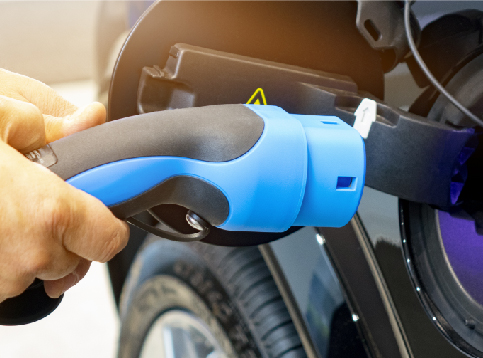Related News
Related News
-
This month, EWEB celebrates 115 years of service Eugene
EWEB celebrates 115 years serving Eugene. As our community grows and challenges increase from aging infrastructure, extreme weather, and climate impacts, EWEB is making thoughtful, long-term investments to ensure safe, reliable service for decades to come.
Find Out More -
EWEB and the UO extend energy generation study
The study is testing whether the UO’s on-site generator can bolster grid reliability and support climate and greenhouse gas reduction goals.
Find Out More -
EWEB and Lane Electric Cooperative sign agreement to transfer EWEB's McKenzie Valley customers
EWEB and Lane Electric Cooperative have reached an important milestone in transitioning electric service from EWEB to Lane Electric in the McKenzie Valley. The two utilities have officially signed agreements for EWEB to sell its electric service territory in the McKenzie Valley to Lane Electric.
Find Out More -
EWEB Board adopts 2026 organizational goals to guide utility priorities
At the January public meeting, EWEB adopted a new set of organizational goals for 2026, providing direction for our work priorities in the year ahead.
Find Out More -
Cold temperatures this week drive highest electricity demand of the winter so far
Frosty conditions in Eugene this week have driven electricity demand to the highest levels so far this winter as heaters strain to keep homes and businesses warm.
Find Out More -
EWEB and the UO launch energy generation pilot project
Pilot project gives EWEB the option to run UO’s on-site natural gas generator this winter, gathering valuable insight into the generator’s efficiency and reliability.
Find Out More -
Sustainability Snapshot - Celebrating Energy Efficiency Projects in the Community
Sustainability Snapshops highlight impactful projects completed by EWEB's Customer Solutions department, as a way to celebrate the meaningful work happening behind the scenes.
Find Out More -
EWEB Sets 2026 Budget and Rates, Advances Evaluation of McKenzie Valley Service Territory Realignment
Taken together, the 2026 budget and rate adjustments and the territory-realignment evaluation reflect EWEB’s dedication to responsible financial stewardship, modern, resilient utility infrastructure, and thoughtful planning for the future.
Find Out More -
EWEB secures $2.5 billion of reliable, affordable, carbon-free energy for customers
The new contract with EWEB’s largest energy supplier, the Bonneville Power Administration, forms the foundation of a diverse energy portfolio.
Find Out More -
EWEB Hometown Heroes compete internationally
Out of 290 teams from 14 different countries, EWEB's Lineman Rodeo team places in the top third of competitors.
Find Out More -
Let's Talk Turkey. Is your family ready for winter?
We're heading into the holidays, but that also means snow, ice, and not-so-nice weather might be in the forecast. Here are some tips to prepare in advance.
Find Out More -
The Bonneville Power Administration Rate Change and Your EWEB Bill
BPA’s finalized rate increase is smaller than projected, and EWEB’s pass-through adjustment effective October 1, 2025 will now be 2.7% for residential customers—down from the anticipated 4%.
Find Out More -
Join the Pledge to Prepare
When you think about getting ready for an emergency, you probably have questions. You aren't alone. Preparing for emergencies can be overwhelming, which is why EWEB has put together a 12-month program to help you and your family get two weeks ready.
Find Out More -
You can’t predict the next disaster, but you can prepare
The earthquake lasted less than a minute. But now the power’s out. The tap runs dry. Cell service is spotty. Would you be ready?
Find Out More -
EWEB completes helicopter installation of salmon habitat features
EWEB adds downed trees and 2,000 tons of gravel to the Uupper McKenzie River below Tamolitch Falls to improve spawning habitat.
Find Out More - Show More
Is Level 1 Charging Fast Enough for You?
November 07, 2019

Most electric vehicles owners will charge their cars at home using a Level 1 or Level 2 charger.
Level 1 home charging is super easy and the least expensive way to fuel an electric vehicle. It uses a standard, three-prong 120-volt outlet and typically won't require modifications to your electrical panel or home wiring. All electric vehicles come with a 110-volt-compatible, Level 1 home connector kit.
Based on the vehicle's battery type, Level 1 charging can take 8 to 20 hours for a full charge.
Is that fast enough for you? The answer mostly depends on the distance you drive.
If you typically drive no more than 30-40 miles per day, Level 1 may be sufficient. That's because you can charge while you sleep. You simply plug-in (or program your car) to start charging at bedtime, and by the time you rise and shine, your battery is fully re-charged.
It all happens while you sleep, so it doesn't matter if takes 8 minutes or 8 hours.
If you typically drive more than 40 miles per day, you may want to consider a Level 2 charger, which uses a 240-volt rated charging unit and will likely require changes to your electrical panel and adding a new circuit, if one is not available. Based on the battery type and circuit capacity, Level 2 charging can take 3 to 8 hours to reach a full charge.
EWEB offers a $500 rebate for Level 2 home chargers and $1,000 for Level 2 charging stations at business.

